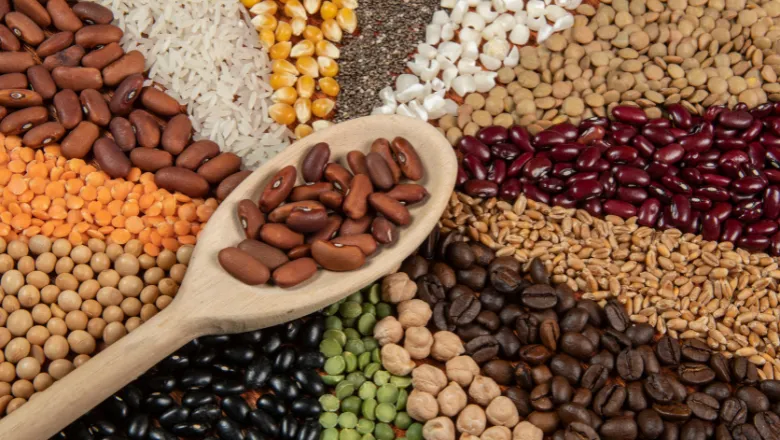Our project is about finding ways to optimise peoples’ diets, with the ultimate goal of improving population health and reducing the global burden of non-communicable diseases. If we do find a way to optimise diets, it could have a tremendous impact on policy, public health messaging, and even the food industry.
Dr Dimidi
12 December 2024
Researchers receive £1.5m grant to investigate impact of plant food diversity on health
Researchers from King’s College London have been awarded a £1.5m research grant from the Biotechnology and Biological Sciences Research Council (BBSRC) for a nutrition study that will investigate the impact of plant food diversity on gut and cardiometabolic health.

Led by Dr Eirini Dimidi and Professor Kevin Whelan, the project (titled ‘Is diversity important? The impact of plant food diversity on gastrointestinal and cardiometabolic health’) will explore whether increasing the diversity of plant-based foods in the diet can optimise health in the local community.
“For decades, governments in the UK and across the world have made efforts to increase the amount of fruit and vegetables people eat, but many people still struggle to meet the recommended intake of at least five portions of fruit and vegetables a day. There also isn’t much focus on other types of plant foods that we know are beneficial to health, such as cereals, beans and pulses,” says Professor Whelan, Professor of Dietetics and Head of the Department of Nutritional Sciences at King’s.
“Rather than focusing on the total number of fruits and vegetables consumed, our project will investigate the effects of increasing the diversity of different plant foods people eat each day,” he adds.
“The rationale behind our study is that by eating a mix of different plant-based foods, we are consuming a wider variety of nutrients and bioactive compounds that all act in a different way in our bodies to benefit our health,” said Dr Dimidi, Senior Lecturer in Nutritional Sciences at King’s.
Preliminary research led by Dr Dimidi involving dietary analysis of a representative cohort of the UK population found a correlation between eating a higher diversity of plant-based foods and improved markers of cardiometabolic health.
The funded project will now delve deeper into these observations in a randomised controlled trial that will look at the impact of plant food diversity on:
- Nutrient intake and diet quality
- The gut microbiome, gut physiology and overall gastrointestinal health
- Cardiometabolic health
The team will recruit 246 healthy volunteers from the local community, aged 30-65 years, who will be randomly allocated into one of two groups. Half will receive a diet high in plant food diversity (intervention group), and the other half will receive a diet containing the average plant food diversity for the UK (control group). Importantly, only the number of different types of plant foods will differ between the two groups – the actual quantity of plant foods and other dietary elements, such as fibre, will be kept the same.
After 4 weeks, the team will look at gut health by measuring the diversity of microbes in participants’ guts. A higher gut microbiome diversity may be associated with better health, and the team hypothesises that those in the intervention group will have a higher gut microbiome diversity, as the microbes will have a wider variety of nutrients to feed and flourish on. They will also look at the differences in metabolites produced in participants’ gut microbiomes, as well as those present in their blood, stool and urine.
To measure the cardiometabolic effects of both diets, the team will use a measurement called flow-mediated dilation (FMD). This measures the level of dilation, or widening, of an artery as blood flows through it. A high FMD is associated with increased oxygen supply to tissues and better cardiometabolic health.
The team in the School of Life Course & Population Sciences at King’s is working with collaborators from the University of Southampton and the University of Leeds on the project, which will begin recruitment in December 2024.


